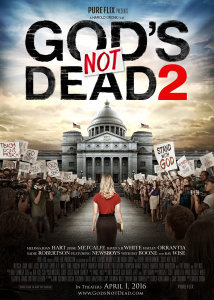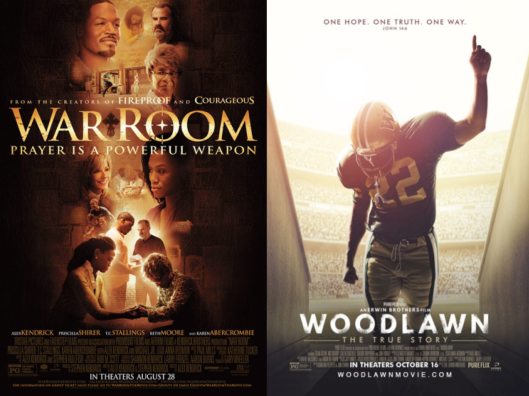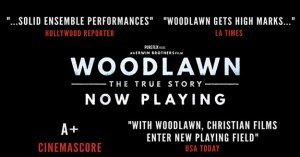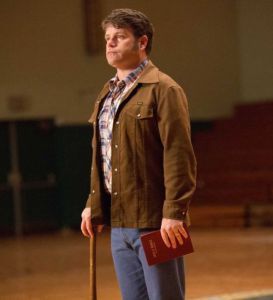Nate Fleming's Blog, page 21
February 29, 2016
Thimblerig’s Ark 2: The Ark Heist • Preview Chapter
They made it to the ark, but the danger has not passed.
Someone on board the ark is not what they seem, and Thimblerig discovers that there are plans afoot to steal the Seed of Asarata, the key to life after the flood. Now, to save the seed and the future, he and his company of animals will have to steal it first, right out from under the noses of Noah, the humans, and the wild dogs who protect it.
Thimblerig’s Ark 2: The Ark Heist
Chapter 1
“What do you say, pal? You in, or you out?”
Thimblerig the groundhog stared across the makeshift table, trying to read the emotionless eyes of the big green iguana, a feat which was extremely difficult. But Thimblerig didn’t have the luxury of being picky these days.
These days. Just a couple of weeks earlier, the days had been a lot less complicated. Back then, Thimblerig had been a simple grifter, plying his trade under the enormous branches of Asarata, the Queen of the Jungle, the great fig tree.
And then he met Tannier Isa, the supposedly mythological unicorn king, and everything changed.
It all happened so quickly, too. One moment, he had been minding his own business, playing his modest shell game for the few figs it could win him, trying to keep his prime spot by the base of the tree, and the next moment he was the leader of a small group of animals, running for their lives from the wild dogs who ran the forest.
And craziest thing of all? He’d gone from mocking the feeble-minded suckers who claimed to believe in unicorns to being a die-hard, certified (or certifiable?) believer himself. Not just one of them, but a leader of a whole group of them.
It had only been a week since he and his little group of believers had scrambled onboard the ark just before the decimating waters had struck. Now he spent his time trying not to think about the world’s destruction happening on the other side of the wooden walls, and getting used to being tossed around like a cub as the ark navigated waves as large as mountains.
And so Thimblerig stole away from his pen in the mammal section and snuck down to the reptiles in attempt to avoid thinking about all of that. And to see if he could win a few figs.
Old habits die hard, after all.
Thimblerig’s nose wrinkled as a terrible smell wafted by. The reptiles had been given a large room deep in the bowels of the great ark so that they could be cool and enjoy the darkness, but unfortunately, the ark had been engineered so that all of the animal waste slid down empty pipes and made its way to the very bottom, a level below the room in which he stood.
How can the reptiles stand it? Thimblerig thought. Maybe their noses work differently than everyone else’s?
“Just give me a minute,” the iguana answered, pulling the groundhog back to the game. He stared down at the three shells sitting on the small rough plank of wood before him. Thimblerig knew exactly what the iguana thought, exactly where he thought the pea sat, and he also knew that it didn’t really matter, because the pea sat exactly where Thimblerig wanted it to sit.
That is, tucked safely under a claw on his right paw.
“Ask for a minute, and I’ll give you two,” Thimblerig, the consummate showman, called for all to hear. “So that your guess may be right and true.”
He looked up at his reptilian audience. Many stared down from their perches on the beams above, some watched while clinging to the walls. It gratified Thimblerig to see so many pairs of glowing eyes looking with curiosity down at his game out of the darkness. If he could get used to the smell, he could really clean up in a room like this, a room filled with gullible believers, unaccustomed to the con. I could get away with anything down here, he thought. No humans, no Kid Duffy, no nobody.
Thimblerig gulped. No nobody indeed, just a room full of animals who – in the wild – would enjoy having a plump groundhog for breakfast. They can’t eat me on the ark, he reminded himself. It’s against the rules.
But as an animal who had made his living breaking the rules, this thought didn’t necessarily make Thimblerig feel any better.
“Alright, I’m in,” the iguana finally said. He reached his snout into a little pouch around his neck, pulled out a dried fig, and dropped it on the table beside the shells. “It’s on the right.”
Thimblerig had rehearsed it a thousand times. “Are you sure?” he asked, crestfallen. “You don’t want to pick the middle one?”
“Yes, I’m sure,” the iguana replied.
“Not the one on the left?” Thimblerig asked.
“I said I’m sure!” the iguana spat, impatient.
Good, good, Thimblerig thought. Emotions lead to mistakes.
“Well, I’m not so sure,” Thimblerig goaded. “I’ll see your fig, and raise you one.” Thimblerig reached into his pouch, pulled out two of his dried figs, and set them down carefully beside the iguana’s lone fig. And then he smiled.
The iguana stared at Thimblerig, either sizing him up or imagining him as breakfast. Thimblerig did his best to lizard-stare the iguana back, not permitting himself to be sized.
Finally, the lizard’s tongue flicked, and Thimblerig knew he had him.
The iguana was pulling out another fig when a screeching voice pierced the darkness of the reptile area.
“Lagar!?!”
A female iguana came stomping through the crowd, scattering reptiles to the left and right on her way to Thimblerig’s makeshift table. Seeing Lagar with his head in his fig bag, the table with figs on it, and a groundhog standing before it all, the female immediately knew what going on.
“You’re betting? Losing all our figs to a furback?”
Lagar slowly drew his head out of the bag, revealing a face full of emotion: Fear.
“No, it’s not like that…” he muttered, with trembling voice.
How humiliating, Thimblerig thought, suddenly glad he didn’t have a mate.
“It’s not like that,” she mocked, moving up so close to the male iguana that her flickering tongue lashed Lagar’s face like a little wet slaps. “We get two figs a day, and you’re dropping them on the table like they grow on trees!”
“Well, they do,” Thimblerig said. And if he had been capable of reaching into the air and pulling words back into his mouth, he would have done it.
“What did you say?” she said, turning to the groundhog. Over the female’s head, he saw that Lagar was shaking his head, ever so slightly. A warning?
“I just said that figs do grow on trees,” Thimblerig stammered, not enjoying being the target of that withering iguana gaze. “Fig trees, to be exact.”
The female hopped up on the table and stuck her big, green, scaly face right into his smaller furry one. “And do you see any fig trees, furback?” she hissed.
“Um, no,” Thimblerig admitted.
“Then take your rotten figs and your rotten games and get out of here before I call that wild dog to come down and take care of you!”
With a final flick of the tongue, she leapt off the table, scooped the figs into her bag, and pushed her emasculated mate off into the darkness, followed by the rest of the reptiles.
It was only after they’d gone, and Thimblerig was able to breathe again, that he realized that she’d just made off with his two figs as well as her mate’s. Alone with the darkness and the stench, the only light coming from the glowing firegems embedded into the walls, Thimblerig packed up his shells and kicked the wooden board aside.
Yeah, the unicorn had definitely messed up the groundhog’s mojo, and then some. The crazy part was that there was a time when having one of his games self-destruct so spectacularly would have decimated him, but now he wasn’t so bothered by it.
Maybe it’s time to try a new line of work, Thimblerig thought, turning and heading up the ramp back towards the other mammals in the levels above.
—
Look for another excerpt in the coming weeks.
Thimblerig’s Ark 2: The Ark Heist will be released on May 1, 2015.
Want to read Thimblerig’s Ark before the sequel is released? Get your copy by clicking on the cover below!


February 16, 2016
Thimblerig’s Guide for Watching Christian Films (for People who aren’t Christians)
Christian films.
Fifteen years ago they were found almost exclusively on the shelves of Christian bookstores. Online streaming at that time was virtually non-existent, they didn’t typically play on the regular movie channels, there wasn’t a “Christian Film” section at Blockbuster video, and the odds were that if you were outside of the Christian subculture, you would never see a Christian movie.
And then, in 2004, everything changed.
The Passion of the Christ, the highest grossing independent film of all time, sent an electric jolt through the American film industry. Realizing that an audience actually existed for movies that talked about the Christian faith as something other than a punchline, the major Hollywood studios wasted little time setting up “faith-based” divisions to try and figure out how to best exploit service this previously-neglected demographic.
 Since then, non-religious theater-goers have seen more and more “faith-based” films being advertised on the coming attraction posters of their local cinemas. Films with ecclesiastical names like “Heaven is for Real”, “God’s Not Dead”, and “Ninety Minutes in Heaven” starring well-known Hollywood actors such as Nicolas Cage, Greg Kinnear, and Jennifer Garner were – for the first time – sharing the stage with typical secular films.
Since then, non-religious theater-goers have seen more and more “faith-based” films being advertised on the coming attraction posters of their local cinemas. Films with ecclesiastical names like “Heaven is for Real”, “God’s Not Dead”, and “Ninety Minutes in Heaven” starring well-known Hollywood actors such as Nicolas Cage, Greg Kinnear, and Jennifer Garner were – for the first time – sharing the stage with typical secular films.
In this brave new world, a regular Friday night movie-goer could walk up to their local megaplex and inadvertently wind up sitting in a movie made by Christians, largely for Christians, and walk out afterwards feeling as if they’d just watched The Big Short without Adam McKay’s explanatory fourth wall breaks.
And so, as Lonely Planet helps guide confused travellers wandering the globe, I’ve developed this guide to help non-religious folks understand what might have just happened if they accidentally wandered into a Christian film.

*caveat – these are generalizations, and specific Christian films may or may not follow these guidelines. Thimblerig accepts no responsibility for such films.*
1) Christian Films are often written in Christianese
The first thing you need to learn when visiting any country is how to say important phrases in the local dialect. Watching Christian films is no different, as our films are peppered with the dialect of the early 21st century American Christian, a dialect known as Christianese. And for some reason, we don’t do subtitles.
[Note to Pureflix: consider adding subtitles to God’s Not Dead 2]
 Some basic samples of Christianese that you may encounter in our films:
Some basic samples of Christianese that you may encounter in our films:
“Does he know Jesus?” – “Is he a Christian?”
“Does he really know Jesus?” – “If he’s a Christian, why doesn’t he go to church?”
“She’s lost, and needs to come to Jesus!” – “She’s not a Christian, but she should be. And she should attend church regularly.”
“You need to ask Jesus into your heart.” – “You need to become a Christian.”
This is usually followed by “The Sinner’s Prayer”, a prayer that a person recites to become a Christian. This a controversial prayer in Christian circles, because it is not Biblical, meaning that it’s not found in the Bible.
“They have a heart for the lost.” – “They want people who aren’t Christian to become Christian. Oh, and they want them to attend church regularly.”
“God is telling me…” – “I have an opinion that I want to share with you, and by putting God’s stamp of approval on the comment, it will have weight and gravitas. Even if it is just my own opinion.”
“I’m blessed!” – has different meanings, depending on the context. If the person has just gotten something good, it means, “God’s given me some good stuff!” If it is said in response to a personal inquiry, it means, “I’m doing fine, thank you.” Ultimately, it’s an attribution to God for whatever is happening in the Christian’s life.
So, in a Christian film, you might find dialogue like this:
This is just a cursory introduction to the language of many Christian films. For more detailed information about the Christianese dialect, I’d recommend that you visit the Dictionary of Christianese.
(Incidentally, if anyone in the Christian film industry would like to option my Bob and Dave script, please let my people know.)
2) Christian films typically tell much more than they show
One of the most important lessons a traveler can learn when exploring a new part of the world is the importance of saying “I don’t understand” rather than “that doesn’t make sense.”
And if there’s one thing about Christian films that doesn’t make sense to people it’s our propensity to tell. Yes, our films tell. They tell, tell, and tell, and then they tell some more, much more than they show, breaking that cardinal rule of storytelling.
“There’s too much exposition in that Christian film,” the secular critics complain. “They tell us everything!”
However, just as you have to take culture of origin into consideration when watching a foreign film, the Christian film viewer who is not actually a Christian should take the culture of origin into consideration.
And Christian culture loves exposition.
I mean, loves exposition.
 The best example of this is found in a style of preaching called “expository preaching,” where the preacher spends days or weeks studying a passage from the Bible in depth, and then on Sunday morning, they stand in front of the congregation (audience) and explain everything the passage has to say, verse by verse – sometimes word by word.
The best example of this is found in a style of preaching called “expository preaching,” where the preacher spends days or weeks studying a passage from the Bible in depth, and then on Sunday morning, they stand in front of the congregation (audience) and explain everything the passage has to say, verse by verse – sometimes word by word.
The preacher will go deep into the cultural and historical significance of the passage of Scripture, even down to the meaning of certain key words in the verse’s original language of Hebrew or Greek.
The idea behind this is that if one can come close to understanding the original meaning of the ancient document, one might better understand what God intended by that Scriptural text, and better figure out how it can be applied to our lives today.
Oh, and by the way, we Christians also love application.
So, in a nutshell, we explain the message very specifically in church so that there is no chance of confusion, and so that the listener can apply it to their own lives. Therefore, it shouldn’t come as a surprise to the uninitiated that we do the same in our films.
Rather than criticizing our films for being over-expositional, maybe secular critics should critique how well our films handled that over-exposition.
3) Christian films are generally Christian wishes being fulfilled cinematically
It’s important to understand the mentality of people when you visit a foreign country. What do the people of that country hope for? What aspirations do they have? How do they view the world?
Some people misunderstand the Christian mentality. They think that we’re a bunch of “pie in the sky in the sweet by and by” people, avoiding reality and clinging to a fantasy about a benevolent old guy who lives in the clouds.
That’s not the case, though. Christians know the reality of the world. We know perfectly well that things can be really, really bad. That things can go south in an instant. But we also know how we wish things were (or in Christianese, how we pray for things to be). So, our films are typically a strange amalgamation of reality and fantasy wish-fulfilment.
For example, we know it’s tough to raise kids, and so our films have no problem showing struggling parents. But we also love a good redemption story, and so in our films someone prays and the runaway kid will make a big personal change (Christianese, repent) and come back home, prodigal-style. This is what we wish would happen with every errant child.
 We also know that marriage is tough in reality, and that not all marriages survive, and so our films will show the difficulty of marriage. But we also believe that God can repair any relationship, and so in our films someone prays and ultimately our film marriages work out. This is how we wish marriages would always work out.
We also know that marriage is tough in reality, and that not all marriages survive, and so our films will show the difficulty of marriage. But we also believe that God can repair any relationship, and so in our films someone prays and ultimately our film marriages work out. This is how we wish marriages would always work out.
In reality, we know that God always answers prayer but that sometimes the answer is “No.” But in our films, we like to focus on when God says, “Yes!” For example, someone prayed to win the big game? Check, game won. Someone prayed to restore the broken marriage? Check, marriage restored. Someone prayed for the sick person to be healed? Check, healing has happened, and death has been defeated.
We like our films family friendly, non-offensive, and easy to watch. We like our films to make us feel better about ourselves as Christians. We typically avoid subjects like the certainty of death, the reality of doubt, and the in-the-dirt nastiness of the mistakes that we make in life. It’s just nicer when things turn out alright, isn’t it?
If you love happy endings, you’ll love watching our films.
4) Christian filmmakers are not infallible
No country you visit is perfect. You know that amazing 5 star hotel, right on the beach? Just a half mile down the road you’ll find people sleeping in hovels and working for pennies. That tourist site that houses ancient ruins that you’ve always dreamed of seeing? It’s all managed by a corrupt government of cigar smoking fat cats who could care less about the orphans running on the streets.
It’s the same with Christian filmmaking. Our filmmakers are not infallible, and they will make strange decisions, and they will focus on curious things from time to time. You don’t have to forgive us for that, but we do hope that you’ll understand.
 For example, if you are paying attention to Christianity in America right now, you might notice that many church leaders are promoting a persecution narrative for American Christians (rather than for global Christians who are actually being persecuted). This might be perplexing to you, because you know that American Christians actually have incredible freedom to practice their religion. But the narrative is out there, and it’s even worming its way into our films.
For example, if you are paying attention to Christianity in America right now, you might notice that many church leaders are promoting a persecution narrative for American Christians (rather than for global Christians who are actually being persecuted). This might be perplexing to you, because you know that American Christians actually have incredible freedom to practice their religion. But the narrative is out there, and it’s even worming its way into our films.
You see, for the longest time, American Christianity has been the big kid on the block politically, financially, culturally, and other -ally ways, but it’s not the case any more. We American Christians are still coming to terms with the fact that we’ve lost power and influence, that our voices aren’t as loud as they used to be, that people often simply don’t care what we think any more.
And we’re certain that – as a result – persecution is coming.
And even though we’ve had our expository preachers tell us that according to the Bible, persecution is a guaranteed part of the Christian experience, we are still terrified that it will really happen. Because we like the “Christians are victorious!” narrative. Remember our wish-fulfillment filmmaking? We want to wind up on top, even though that pretty well goes against everything Jesus taught.
If you aren’t a Christian, then our cries of persecution in America probably seem ridiculous to you, and might even serve to create more and more animosity from you towards us.
And in a height of irony, I can imagine the animosity building to the point that our focus on making movies that stoke the fires of fear could actually turn out to be the catalyst for actual persecution. In other words, I can imagine that our fear of persecution could become a self-fulfilling prophecy.
Wouldn’t that make an interesting Christian film?
5) Christian films are hopefully evangelistic
Countries that have bustling, successful tourist industries convince people that when they visit, they will never want to leave.
Christian filmmakers have a similar goal with their films. If you are not a Christian, they hope that their films tells about the Christian experience so clearly that after watching you will also want to become a Christian (Christianese, give your heart to Jesus).
“Really?” You say, befuddled. “Then why use all of the insider language that I don’t understand? Why break the traditional rules of storytelling to the point where I’m too distracted by exposition to see the value in being a Christian? Why all this talk about persecution when all I see is Christians making noise? Why does it seem less like these Christian films are trying to attract me, and more like they’re trying to push me away? Why do they make it so hard?”
I know, I know. Reaching you with our films seems more like an afterthought, and your becoming interested in Jesus as a result of our films would just be some sort of religious collateral damage.
The only thing I can say is that Christian filmmakers are working in a business. An industry. And they have to serve multiple masters, just like all filmmakers, and that affects the films that are made, no matter what the hope of the filmmaker might be.
Christian filmmakers have to please their investors, who are usually also Christians. And they are often Christians who love expository, on-the-nose, don’t-mess-around preaching. They can be less interested in artfulness and more interested in admonition. Their purpose is communication usually at the expense of craft. Their goal is to put out the Message, and the medium is simply utilitarian, like a jeep or a Swiss Army knife.
Also, since Christian filmmaking has started to become big business, the filmmakers also have to please the secular studios, who might be footing the bill for distribution or marketing. And the studios need to be convinced that the product that the Christian filmmaker is developing is going to put the behinds of the Big Christian Audience into the cinema seats.
 This means that Christian filmmakers have to ultimately please that Big Christian Audience.
This means that Christian filmmakers have to ultimately please that Big Christian Audience.
Make one misstep, and the Big Christian Audience won’t turn out, and the filmmaker might not get the chance to make a second faith-based film. Play his cards right, and he stands to make a 2000% return on his film’s initial investment, which will make everyone happy. His career will be set.
So you can see, that even if a filmmaker has a heart for the lost, and a desire to see thousands of people come to Jesus, her ability to make a film that would actually be evangelistic is restrained by the forces pulling her in other directions, forces that – ironically – want to be evangelistic, too.
6) And by the way, we make a lot of End Times movies
Statistically speaking, if you accidentally walk in on a Christian film, it’s likely to be a movie dealing with the end of the world, or the End Times. This might be connected with #5, and I’m not going to say a lot about it other than to say that for some reason, we have a certain segment of the Christian filmmaking community that is absolutely fascinated with the end of the world.
This is even though in Matthew 24:36, Jesus himself told us that nobody will know when the end will come. Go figure.
You can see an amazing IMDb list of Christian End Times movies here.
—
Thimblerig’s Guide to Christian Films is woefully incomplete, but what do you expect from a blog article? If you truly want to see an actual guide, then feel free to start me a crowdsourcing campaign, or put me in touch with the fine folks at Zondervan, and we’ll see what we can do.
Meanwhile, may this guide help the next time you stumble into a movie starring Kirk Cameron or Kevin Sorbo, or the next time your well-intentioned Christian friend invites you over and pops in a movie made by a pair of brothers named Kendrick. Maybe, because you have some insight into their culture and mindset, you’ll better appreciate their intentions.


February 11, 2016
Visiting the Dinosaur Zoo in Hong Kong
 The final event of our Chinese New Year trip to Hong Kong was a trip to the Udderbelly Festival‘s Dinosaur Zoo, and it was a great way to top off our trip, especially for our two and half year old dinosaur fan, Noah.
The final event of our Chinese New Year trip to Hong Kong was a trip to the Udderbelly Festival‘s Dinosaur Zoo, and it was a great way to top off our trip, especially for our two and half year old dinosaur fan, Noah.
The Dinosaur Zoo folks are from an Australian company called Erth, and they put on a great show! The audience was filled with kids of all ages, and they really responded enthusiastically to the entire production.












The show runs from February 10 to 14th, with shows in English and Cantonese. Go here for more information, and plan to take the kids! They’ll love it!


February 9, 2016
2016 Hong Kong Chinese New Year Fireworks
If you’re looking for a video of the entire Hong Kong Chinese New Year fireworks display, then look no further.
Just be prepared to hear my family gabbing the entire time, because of the excellent sound-proof windows of our hotel.
A great night, and a great view from the Hotel Panorama!







February 7, 2016
McDonald’s Next • Hong Kong
 Want to know what McDonald’s of the future might look like? You just have to go no further than Hong Kong’s Admiralty Center and the McDonald’s Next Concept Restaurant. This is a one-in-the-world McD’s dining experience, and has both the traditional menu as well as healthier options that you build for yourself.
Want to know what McDonald’s of the future might look like? You just have to go no further than Hong Kong’s Admiralty Center and the McDonald’s Next Concept Restaurant. This is a one-in-the-world McD’s dining experience, and has both the traditional menu as well as healthier options that you build for yourself.








The fancy new McDonald’s was a hit for my kids. While my daughter went the traditional double cheeseburger route, my son ordered a hamburger that you built to order, and he said it tasted better than a typical McDonald’s burger. I had the build your own salad with grilled chicken and asparagus (!), and it was quite tasty, and I didn’t leave McDonald’s feeling like I needed to take a few Lipitor for my trouble.
The food was brought to our table by nice McDonald’s employees, and was pretty quick in arriving. And while you can tell that it was a crowded place, we very quickly found seats, and they even had cell phone chargers on every table – which in Hong Kong is a pretty big deal.
I didn’t try the McCafe options, but the baked goods and coffee looked like an upgrade from the typical McCafes that you find in McDonald’s all over China.
It was a pretty cool experience, eating in this McDonald’s from the future. If you’re in Hong Kong, give it a try!


The Movieguide Awards Results
 It took a bit of sleuthing, but the results of the 24th Annual Movieguide Faith & Values Awards Gala and Report to the Entertainment Industry are in!
It took a bit of sleuthing, but the results of the 24th Annual Movieguide Faith & Values Awards Gala and Report to the Entertainment Industry are in!
So, without further ado, and without any further understanding or clarity about who makes the decision of who wins these awards, I give you:
The Winners of the 24th Annual Movieguide Faith & Values Awards Gala and Report to the Entertainment Industry (and the link to where I found out that they’d won):
The Most Inspiring Performance for Television:
Alyvia Alyn Lind, Gerald McRaney, and Jennifer Nettles, Dolly Parton’s Coat of Many Colors
The Most Inspiring Performance for Movies:
The Best Movie for Mature Audiences:
The Best Movie for Families:
The Bradley Foundation Faith & Freedom Award:
And the two biggest prizes of the evening…
Where you get a nice plaque and $100,000 for winning…
The $100,000 Epiphany Prize to the Most Inspiring TV Program of 2015:
Dolly Parton’s Coat of Many Colors
The $100,000 Epiphany Prize to the Most Inspiring Movie of 2015:
Fun fact, this makes the third movie for the Kendricks to win the big prize at Movieguide, out of their five movies. I’d say they are officially the team to beat when it comes to the Movieguide Awards.
To see the festivities in all of their glory, you can watch on Feb. 22 and again two days later on the Reelz Channel.
By the way, does anyone know how one could get their hands on this report that Movieguide releases? Also, if anyone at Movieguide would be gracious enough to explain to me the process of how the winners are selected, I would love to write an article about it.


February 2, 2016
Happy Groundhog Day from Thimblerig the Groundhog!

And if you haven’t taken the time to read Thimblerig the groundhog’s story, and how his scheming saved a bunch of animals from Noah’s flood, run now to Amazon and download the first book, Thimblerig’s Ark! Click on the cover for more info.
Coming soon, Thimblerig’s Ark 2: The Ark Heist


January 31, 2016
Woodlawn, War Room, and Unity
Living in China has its benefits – great food, meeting new unique people almost daily, and easy proximity to other equally interesting Asian countries, to name a few things. But considering I am something of a cinephile, the one big negative is my inability to see new American movies unless they are among the 34 movies chosen by the Chinese censors to be screened here.
This unfortunate situation is compounded by the fact that I write film reviews of a very specific, narrow genre of film – the so-called “faith-based” film genre, and faith-based films never make China’s cut of 34 films (but they could… read here to see how). This means I never get to see the films I like to review until months after everyone has stopped talking about them, which doesn’t give me a lot of capital in the relevance market.
 And so, with that understanding, I set out to review War Room and Woodlawn, two of the bigger Christian-made film titles that have recently been released to the home viewing market.
And so, with that understanding, I set out to review War Room and Woodlawn, two of the bigger Christian-made film titles that have recently been released to the home viewing market.
These are an interesting pair of films, and their splash into the culture was also interesting, for similar but opposite reasons. First, War Room, a little, relatively inexpensive film made by the Kendrick brothers (Facing the Giants, Fireproof, Courageous) did what Christian films rarely do, and made a huge return on its initial investment (budget of $3M, current box office $72.1M) even though it scored poorly with critics (34% on Rotten Tomatoes). Then, two months later, Woodlawn, a big football movie by the Erwin brothers (October Baby, Mom’s Night Out) set in early 1970’s Birmingham did something Christian-made films never do, and premiered to several mostly positive secular critical reviews (currently 83% on Rotten Tomatoes with 12 reviews), even as it failed to earn back its budget of $25M.

“I said right hand on green, Alex! Come on, pay attention!”
This intrigued me to no end. Not so much the story of War Room‘s success, as Alex and Stephen Kendrick are the closest thing Christian filmmaking has to a sure thing. The brothers could release a home video of their family playing Twister while dressed like Imperial stormtroopers, and the Big Christian Audience would still turn out in droves.
Actually, I’d probably watch that.
No, I was more interested that an openly Christian-made film replete with overt Christian themes and messages could be received positively by secular film critics, but be relatively ignored by the coveted Big Christian Audience. Especially when one considers that certain vocal members of the Big Christian Audience regularly blast secular critics as being biased against Christian-made films.
So, fickle Big Christian Audience, why didn’t you guys go out and see a film made for you that the critics actually liked? I don’t get you, and I can only imagine the frustration Christian filmmakers feel, trying to figure you out.
But I digress.
 I was finally able to watch Woodlawn this past week with my kids, and for the most part, we enjoyed it. I could understand the critical response to the film, with Frank Scheck at The Hollywood Reporter writing that the brothers delivered “a feel-good, real-life inspirational story in a mostly engaging fashion.” And Joe Leydon at Variety, “the overall narrative mix of history lesson, gridiron action and spiritual uplift is effectively and satisfyingly sustained.” Even Tyler Smith – who, as the host of the More Than One Lesson podcast is a Christian reviewer who doesn’t give Christian films an easy pass – wrote that with Woodlawn, the Erwin brothers had “thrown down the gauntlet for the Christian film industry.”
I was finally able to watch Woodlawn this past week with my kids, and for the most part, we enjoyed it. I could understand the critical response to the film, with Frank Scheck at The Hollywood Reporter writing that the brothers delivered “a feel-good, real-life inspirational story in a mostly engaging fashion.” And Joe Leydon at Variety, “the overall narrative mix of history lesson, gridiron action and spiritual uplift is effectively and satisfyingly sustained.” Even Tyler Smith – who, as the host of the More Than One Lesson podcast is a Christian reviewer who doesn’t give Christian films an easy pass – wrote that with Woodlawn, the Erwin brothers had “thrown down the gauntlet for the Christian film industry.”
Of course, all the reviews also pointed out that the film was not perfect, and there were some problems (not the least of which was the tiresome “the government is persecuting Christians” subplot), but ultimately the critics judged Woodlawn on its merits as a film. And since the conclusions were mostly positive, I think we can all agree that that is real progress in the arena of faith-based filmmaking.
So kudos to the Erwins for the accomplishment, even if Woodlawn wasn’t the Christian blockbuster you were hoping it would be.
But when I went to write my review of the film, a funny thing happened. Being late to the game was a problem once again. But this time it was because for every critique or compliment I’d think about writing, I’d remember that I’d read that same thought – usually more eloquently expressed – in one of the reviews published last fall, when people were actually writing reviews of the film.
In short, I didn’t have anything new to say about Woodlawn. And I didn’t want to write a review when I didn’t have anything new to say. It was a good lesson for me to avoid reviews until I’ve seen the movie, even if I have to wait a few months. You got that, God’s Not Dead 2? You’ll probably have until the summer before I get around to you, unless you want to send me an advanced screener…
I was walking home from work, about to throw out the idea of writing about Woodlawn altogether, when something hit me. No, it wasn’t a bus or a bicycle, (although that is a real danger here in China) but rather it was a big plot point of the film, and a parallel from the film to the true story of the two sets of filmmaker brothers, the Erwins and the Kendricks. And I knew what I wanted to write about.
That is, unity and the mindset of these Christian filmmakers.
 Before I get into that, let me go back to Woodlawn for a moment. You have to remember that this film is based on a true story, and the truth is where it derives most of its power. For example, when Sean Astin’s character shares the Gospel with the entire team, and the entire team responds to his call to choose Jesus, an event like that really happened. When, in the film, the team dedicates their season to Jesus – win or lose – that really happened. When, in the film, Woodlawn’s rival team also hears Hank’s message and chooses Jesus as well, that really happened. When, in the film, the two teams become one in Christ, even as they play each other in the championship game at Legion Field, that event really happened.
Before I get into that, let me go back to Woodlawn for a moment. You have to remember that this film is based on a true story, and the truth is where it derives most of its power. For example, when Sean Astin’s character shares the Gospel with the entire team, and the entire team responds to his call to choose Jesus, an event like that really happened. When, in the film, the team dedicates their season to Jesus – win or lose – that really happened. When, in the film, Woodlawn’s rival team also hears Hank’s message and chooses Jesus as well, that really happened. When, in the film, the two teams become one in Christ, even as they play each other in the championship game at Legion Field, that event really happened.
It’s really important to remember that while the Erwins had to take some creative licence on certain details for the sake of the film, the large events really happened. And that is powerful. Actually, that’s where the potential power in Christian-made films really lies – not in creating unrealistic Christian fairy tales where we show what we would like to see God do in the world, but films that show the world that God really does “show up,” and when He does, He does some pretty amazing things.
Even in the lives of our Christian filmmakers.
If you think about it, the story of the Erwin brothers and the Kendrick brothers could be the same as Woodlawn‘s pre-faith football teams. Two sets of filmmaking brothers, both trying to help establish Christian filmmaking as something to be taken seriously, both enjoying a reasonable amount of success, both trying to connect with the same broad, fickle demographic.
They could be bitter rivals.
Maybe they should be bitter rivals.
But they’re not.
And this is a testimony to the unifying nature of the Gospel.
 Remember the climax of Woodlawn? The big championship match between Woodlawn and Banks, the historic game that brought huge crowds out to Birmingham’s Legion Field in 1974? The interesting thing is that in the film, the game wasn’t noteworthy because of who won or lost the game. It wasn’t noteworthy because it featured two of the best high school players in the nation. It wasn’t even noteworthy because of the record-breaking number of people who came out to see the game.
Remember the climax of Woodlawn? The big championship match between Woodlawn and Banks, the historic game that brought huge crowds out to Birmingham’s Legion Field in 1974? The interesting thing is that in the film, the game wasn’t noteworthy because of who won or lost the game. It wasn’t noteworthy because it featured two of the best high school players in the nation. It wasn’t even noteworthy because of the record-breaking number of people who came out to see the game.
No, in Woodlawn, the game was noteworthy because of the way the unifying nature of the Gospel brought these two rival teams together. Certainly both teams wanted to win, but the film demonstrated that what really mattered was that both teams were playing in a way that demonstrated the power of God in their lives.
In the same way, of course both the Kendricks and the Erwins wanted their respective films to do well in the box office. In his video essay, “Woodlawn Keynote: This Is Our Time“, Jon Erwin even talked about the need for Christian filmmakers to be thinking in terms of creating blockbusters with explicit Christian themes and messages, and it was obvious that he was hoping for Woodlawn to take off the way that War Room had.
But for reasons only marketing people might be able to definitively figure out, it didn’t happen. The Big Christian Audience that flocked to War Room and even God’s Not Dead largely stayed home when Woodlawn premiered, even though Woodlawn had all of the requisite beats for a faith-based film, was better received critically, and had many of the same Christian film movers and shakers behind it.
But here’s the cool part – days after Woodlawn was released, the Kendricks posted this on their facebook page:
A couple of weeks later, Stephen Kendrick posted this picture on Facebook:

The Kendricks were doing their part to let their audience know that Woodlawn was in their wheelhouse, acting as if the Erwins weren’t the competition, even if they were players on a different team.
Even if their films were competing for that same demographic.
The Kendricks were communicating that there was something bigger going on then winning bragging rights for box office success.
And then, as I researched the Erwins, I found that for every interview that mentioned the success of War Room in general or the Kendricks in particular, the Erwins responded in kind.
For example, in one interview Andy Erwin responded to a question that referenced War Room like this:
[We are] honored by those that have plowed the way like Stephen and Alex Kendrick … and so many others that have worked hard to prove there is an underserved market. Hollywood has taken notice and as one of us wins, we all win as Believers in the industry. War Room has done amazing and we are excited to be up next. God is on the move!
Certainly the argument could be made that these filmmakers don’t have a choice but to put on a publicly supportive face, that the circle of successful Christian filmmakers is so small that they have to get along, that even Hollywood filmmakers act like they get along because you never know who you’ll be working with (or for) in the future.
But for the sake of argument, and because I typically like to think the best of people, I’m going to imagine that this display of unity between the Kendricks and the Erwins is not typical Hollywood flattery and apple polishing. Rather, these men are striving to live Jesus’ call for his followers to be unified (John 17:20-23), for the ultimate goal that the world would know Him.
 And their story inspires me, even as I try to live out my faith. This display of unity in the face of a variety of wins and losses (both box office and critical response) inspires me to do my part to seek unity within the family of God where I am. And it makes me ask; do I look at the work of fellow Christians and see competition to be beaten, or do I see their success as my success, and their failure as my failure, because we’re brothers and sisters in Christ on a common mission in life?
And their story inspires me, even as I try to live out my faith. This display of unity in the face of a variety of wins and losses (both box office and critical response) inspires me to do my part to seek unity within the family of God where I am. And it makes me ask; do I look at the work of fellow Christians and see competition to be beaten, or do I see their success as my success, and their failure as my failure, because we’re brothers and sisters in Christ on a common mission in life?
And to put an even sharper point on the question for me, do I even see this when I look at the fickle Big Christian Audience, and all of the people who attempt to service that audience with films, with music, with books, even with the Christian kitsch and tschokies?
What about the Christians who hold different political beliefs than me?
What about the Christians who are in different denominations than me?
What about the Christians who are different races than me?
Do I even champion unity with these people, for the sake of the Gospel?
Do I?
Ouch.
Back to Woodlawn and War Room, neither film is perfect, and to be perfectly frank, neither film is my kind of film. In fact, if I were a “brother” from either family, I would want take these films in much different directions. But while I may not be an Erwin or a Kendrick, I am glad to know that these men are still my brothers in the family of God, and I appreciate that they’ve taught me something important about my faith in the way they live their lives.
In an interview with gospelherald.com about Woodlawn, Jon Erwin said:
Woodlawn is a story about one team making a decision to love God and love each other. What if what we see now began to multiply and what if everyone made the decision to love God and love each other – what difference would that make in America today? If we lived out the sentence that Jesus said 2,000 years ago – “Love God with all your heart, soul and mind, and love each other as yourself.”
Amen, Jon.
Amen.


January 17, 2016
The Parable of the Director and the Screenwriter
Jesus told this parable:
 Two people went to Hollywood to get involved in the entertainment industry.
Two people went to Hollywood to get involved in the entertainment industry.
One was a film director from Georgia who felt called to make Christian movies, and the other was a screenwriter from Jersey whose ambition was to become the next Quentin Tarantino. The two wound up living in adjoining apartments in the Valley where they would pass each other every day, but they never spoke.
The director from Georgia, who had come to Hollywood because he was so bothered by the stream of morally bankrupt movies and programs being produced there, was offended by the lifestyles he encountered in L.A. and angered by the way industry people so often made fun of religion. Emboldened by the culture war messages he would read online, he decided to turn his energies to creating a Christian alternative to Hollywood.
One afternoon he sat in church and prayed, “God, I’m so glad I’m not like the other people I see out here – the godless actors, hedonistic directors, vile comics – or even like that liberal screenwriter who lives next door, people who don’t know you and who are trying to destroy traditional American family values. I’m in church every Sunday, attend Bible study twice a week, fast and pray regularly, and give money to conservative politicians. I will play an important part in saving the culture, and I’m so glad you sent me here to stand in the gap.”
At that same moment, the screenwriter from Jersey – after working for hours at Alfred Coffee trying to break a new script idea – was wandering the streets. She missed her family, was agonizing over the less talented writers who sold scripts while her career was going nowhere, regretted that clingy guy she’d brought home the night before, and was worried that she’d started drinking too much.
When she found herself standing across the street from the church, a small part of her felt like she should go in, but she just couldn’t. There was too much baggage.
Instead, she sat on a bench and broke down into sobs, crying out, “God, what’s the point of all this? What am I even doing here? If you’re out there, please give me a break. I just really need a break… I’m so sorry… for everything…”
And Jesus said, “I tell you that the screenwriter, rather than the director, was justified before God. For all those who exalt themselves will be humbled, and those who humble themselves will be exalted.”
Inspired by Luke 18:9-14 and this article about the Golden Globes.


January 15, 2016
The 2015 Movieguide Awards Nominations
If you were too busy soaking in the Oscar Nomination awards to notice, you might have missed the Movieguide award nominations, which were announced on January 11 at the Universal Hotel in Los Angeles by Movieguide founder, Dr. Ted Baehr.
The 24th Annual Faith & Values Awards Gala and Report to the Entertainment Industry will be held on Friday, February 5 at the Universal Hotel in Los Angeles, and it is sure to be a star-studded affair – at least for those who love the “faith-and-family” genre of filmmaking.

Duck Dynasty wins in 2014… (Source: Alberto E. Rodriguez/Getty Images North America)
Movieguide is an “international family guide to movies and entertainment”, and the awards show exists to help celebrate that aspect of the entertainment industry. That means that these awards aren’t necessarily for the best films of the year (no The Revenant or Mad Max to be found here), but for those films that exhibit the best in “family friendly” qualities.
The big prizes of this awards show are the coveted Epiphany Prizes. Past winners of this prize (given for film and television) are an eclectic group of films, including God’s Not Dead, Les Miserables, The Chronicles of Narnia: Voyage of the Dawn Treader, and Fireproof. The Epiphany Prizes are $100,000 prizes that are awarded annually to the movie and television program that resulted in a “great increase in man’s love or understanding of God,” although I’m not really sure who makes that call – after all, it’s really not clear who votes for these awards.
The long-short of it is – this is one of thew few places where faith based films and television typically get any recognition, although the awards recognize secular films as well.
And because everyone is awards-show crazy right now, here are the nominees for the 24th Annual Movieguide Faith & Values Awards, and you may do with them what you will:
The $100,000 Epiphany Prize to the Most Inspiring Movie of 2015,
The 33
Brooklyn
Captive
Do You Believe
Manny
War Room
Woodlawn
The $100,000 Epiphany Prize to the Most Inspiring TV Program of 2015:
A.D.: The Bible Continues
Ancient Roads from Christ to Constantine
Blue Bloods: Hold Outs
Chicago Fire: Forgiving, Relentless, Unconditional
Dolly Parton’s Coat of Many Colors
Saints & Strangers
The Bradley Foundation Faith & Freedom Award:
Cinderella
The Good Dinosaur
The Hunger Games: Mockingjay – Part 2
Joy
Max
McFarland, USA.
Woman in Gold
The Best Movie for Families:
Cinderella
The Good Dinosaur
Home
Inside Out
Max
Paddington
The Peanuts Movie
Shaun the Sheep Movie
The Spongebob Movie: Sponge Out of Water
War Room
The Best Movie for Mature Audiences:
The 33
Ant-Man
Avengers: Age of Ultron
Furious 7
The Hunger Games: Mockingjay – Part 2
Joy
Jurassic World
The Martian
McFarland, USA.
Mission: Impossible – Rogue Nation
The Most Inspiring Performance for Movies:
Antonio Banderas, The 33
Kate Mara, Captive
Ted McGinley, Do You Believe
Juliet Stevenson, The Letters
Karen Abercrombie, War Room
Sean Astin and Jon Voight, Woodlawn
The Most Inspiring Performance for Television:
Emmett J Scanlan, Joe Dixon, and Juan Pablo Di Pace, A.D.: The Bible Continues
Gordon Clapp, Chicago Fire: Forgiving, Relentless, Unconditional
Alyvia Alyn Lind, Gerald McRaney, and Jennifer Nettles, Dolly Parton’s Coat of Many Colors
Vincent Kartheiser, Saints & Strangers
—
I would say see you on February 5, but I’m not sure if this show is able to be viewed. If you know where one could watch the Movieguide awards, let me know and I’ll add it!







